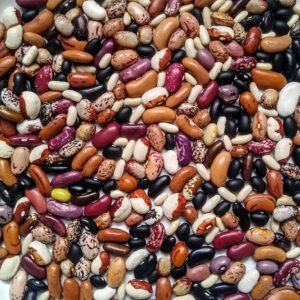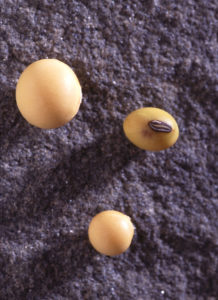
 The story goes like this: In the late ’90s, Monsanto and other biotech firms assert their new herbicide-tolerant GE crops are good for the environment because they will reduce farmers’ reliance on chemicals. In less than a decade, these varieties (by design) lead to a major upsurge in herbicide use, especially glyphosate. The overuse of glphosate speeds up weed resistance in less than a decade and, in some parts of the U.S. today, are considered “the single largest threat to production agriculture.”
The story goes like this: In the late ’90s, Monsanto and other biotech firms assert their new herbicide-tolerant GE crops are good for the environment because they will reduce farmers’ reliance on chemicals. In less than a decade, these varieties (by design) lead to a major upsurge in herbicide use, especially glyphosate. The overuse of glphosate speeds up weed resistance in less than a decade and, in some parts of the U.S. today, are considered “the single largest threat to production agriculture.”
The problem of glyphosate resistance has been the topic of two congressional committee hearings that you can view here. But the real threat is much bigger than this outgrowth of the technology. The real threat is a continued reliance on a paradigm that is incompatible with sustainable and organic farming systems. The latest solution offered by the biotech industry is a rebate program that pays farmers to increase the number of herbicides they use as one way to confront glyphosate resistance. (Don’t forget about Dow Chemical’s 2,4-D resistant varieties in the pipeline.)
Relying on transnational chemical firms to deliver what’s best for American farmers and their communities is the antithesis of building healthy soil, food, and people. We need to encourage a different resistance through the seed we choose and food we feed. And we need USDA to step up and support alternatives that provide for a truly sustainable future. Bolstering public breeding programs is one way to confront the imbalance of industry power and control over our seed, and provide farmers more seed options bred to sustain life, not stacked with traits engineered to support chemical systems designed to destroy it.
